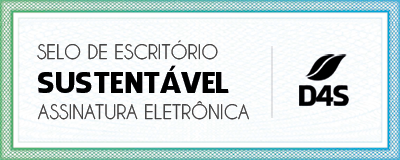
Working in Portugal: Which type of recognition to choose?
Moving to a new country opens up a world of opportunities and challenges. The search for a new environment, new people, and new experiences is exciting, but it also presents unique challenges – one of the most important being the continuation of your professional career in the host country. For those wishing to explore professional opportunities in Portugal, it is crucial to understand how the professional recognition system works.
Portugal’s professional recognition system is governed by the constitutional freedom to choose one’s profession. This means that for a wide range of unregulated professions, employment requirements are determined by the employer. However, in the case of regulated professions, there are certain requirements and standards that must be met.
This article aims to provide a comprehensive and detailed guide to navigating the professional recognition process in Portugal. Here, we’ll explore the difference between regulated and unregulated professions, the procedure for recognizing professional qualifications and the general steps to follow if you want to work in Portugal.
Freedom to choose a profession
In Portugal, the constitution guarantees freedom of choice of profession, a principle that guides both access to and exercise of professional activities in the country. This freedom means that for a large number of professions, known as unregulated, the requirements for professional practice are determined by the employer. This allows for greater flexibility in career choice, where requirements are defined according to the specific demands of the employer and the business area in question.
However, this freedom has an exception: for regulated professions, there are specific and mandatory criteria for the exercise of the activity. Regulated professions are those whose standards of practice, qualifications and ethics are defined and maintained by a specific regulatory body. These professions cover a variety of fields, including health, law, engineering, among others, and generally require some kind of formal education, training and certification.
Although freedom of choice of profession is a protected right, it is important that those wishing to work in Portugal are aware of the differences between regulated and unregulated professions. This helps to ensure compliance with the specific rules and regulations of your chosen profession and facilitates the process of obtaining employment in the country.
Regulated and Unregulated Professions
There are two main categories of professions in Portugal: regulated and unregulated. Regulated professions are those whose qualifications and standards are defined by law, and are usually accompanied by regulatory bodies that oversee adherence to these standards. This includes professions such as doctors, lawyers and engineers, which require formal education, specific training and, in many cases, official certifications or licenses.
In contrast, unregulated professions have no specific qualifications required by law. For these professions, the qualification and experience requirements depend on the employer’s discretion. To determine the category of your profession, you can consult the list of regulated professions in Portugal. If in doubt, it is advisable to contact the national organization responsible for professional recognition.

Regulated professions:
- They require specific qualifications by law
- Often require official certifications or licenses
- They are supervised by regulatory bodies
Unregulated professions:
- No specific qualifications required by law
- Requirements depend on the employer
- They are not supervised by regulatory bodies
Recognition of Professional Qualifications
If you want to work in Portugal and have professional qualifications obtained abroad, it is likely that you will need to go through the process of having your professional qualifications recognized. This process is managed by various Portuguese government agencies, such as the Directorate General for Higher Education (DGES), the Directorate General for Employment and Labor Relations (DGERT) and the National Agency for Qualification and Vocational Education (ANQEP). All agencies provide information on the process and the steps to follow to have your professional qualifications recognized.
Recognition of professional qualifications is essential to ensure that your skills and knowledge are compatible with the standards of your profession in Portugal. The recognition process is personalized, taking into account the nature of the profession and the country where the qualification was obtained. The main objective is to validate whether the foreign qualification is equivalent to the corresponding Portuguese qualification.
This process may involve assessing your certificates, diplomas and work experience in order to confirm that you meet the standards required in Portugal. In some cases, it may be necessary to take an exam or gain more practical experience before obtaining full recognition. Regardless of the path you follow, the ultimate goal is to ensure that you are duly qualified to practice your profession in Portugal.

Steps to follow
To get your professional qualifications recognized in Portugal, you need to follow a few essential steps. Each one is detailed below:
- Investigation: First of all, you need to understand the process as a whole. Contact DGES, DGERT or ANQEP for detailed information on the recognition process. Gather all the information you need about the forms to fill in, the documentation required, the possible need for official translations and other requirements that may be unique to your profession.
- Identifying your profession: Check whether your profession is regulated in Portugal. If so, you will need to contact the relevant regulatory authority for more information on the specific requirements for practicing the profession. This step is crucial to ensure that you are aware of all the necessary qualifications and certifications.
- Preparing documents: Next, start gathering the necessary documents. This usually includes qualification certificates, academic equivalencies/recognition and proof of professional experience. Depending on the profession and the country where the qualifications were obtained, it may also be necessary to arrange for these documents to be officially translated and notarized.
- Request for recognition: Once you have gathered all the necessary documents, you can submit your request for recognition to the competent authority. This is a formal stage in which you present all your qualifications and evidence for evaluation. Bear in mind that the evaluation process can take some time. It’s important to be patient and wait for the decision. There are three types of recognition and you will need to have identified which one is right for you.
- Follow-up: After submitting your order, monitor its progress regularly. It may be necessary to respond to additional requests for information or clarification during the evaluation process.
Remember, each profession and each case is unique. The exact steps and requirements may vary depending on individual circumstances. It is therefore essential to research and fully understand the process before starting.
Conclusion
Moving to another country and adapting to a new professional culture can be a challenging process, but also an incredible opportunity for personal and professional growth. For those planning to work in Portugal, understanding the process of professional recognition is essential. Although it may seem like a complex and time-consuming process at first glance, the good news is that Portugal has a structured professional recognition system that aims to ensure that professionals’ skills and qualifications are duly recognized.
With the right information and resources, such as those available on the DGES website, the process of obtaining professional recognition in Portugal can be a smooth and effective experience. It’s crucial to do careful research, prepare properly and maintain patience throughout the process. Remember that each case is unique and there may be variations depending on the profession and specific qualifications.
And if you want to complement your career with further training, Portugal has a wide range of courses and options available.
Finally, we hope that this detailed guide will provide you with the information you need to help you make the transition to working life in Portugal. The journey may be long, but the rewards of working in your chosen profession in a new country certainly outweigh the challenges. We wish you the best of luck on your journey!



